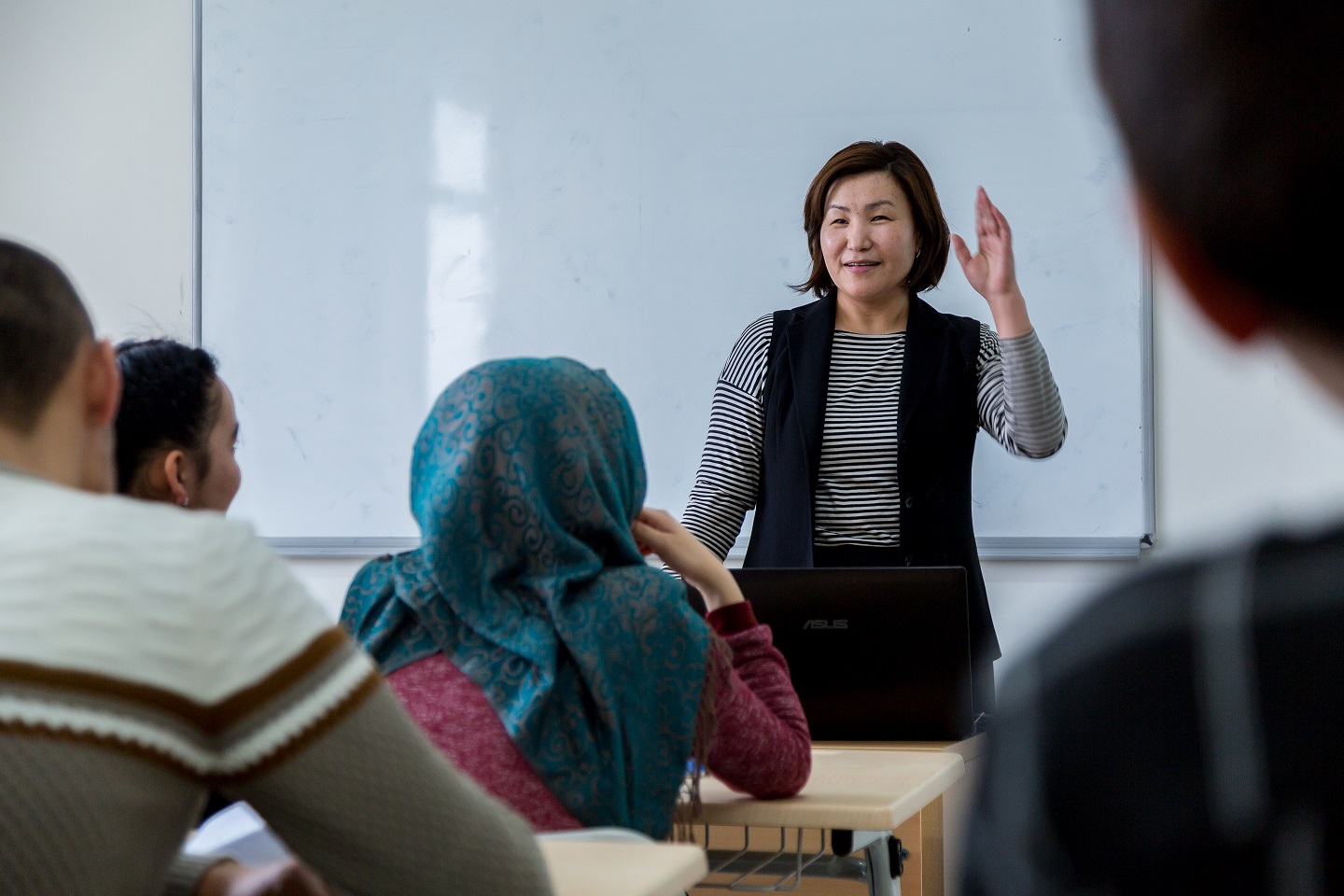
The most important requirement for the survival of any living organism is the search and fight for food. The problem of providing for for every person is one of the biggest global issues facing humanity.
According to statistics from 2015, some of the most active industrial fields in the Kyrgyz Republic are food production and processing, which account for one third of industrial activities and one quarter of exports. A majority of citizens work in the agricultural and food industries, and there are over 10,000 large, middle, and small industries working in food production and processing in the Kyrgyz Republic. However, these industries are underdeveloped and are unable to meet the needs for processing grains, vegetables, fruits, meat, and milk. Of all of the agricultural products produced in the Kyrgyz Republic, only about 20% are processed, and a large part are lost because of the lack of modern technologies for processing, packing, storing, and transporting products. This is why improving these technologies is one of the main demands for growing the economy of the Kyrgyz Republic. This specialty covers many fields: enterprises in food industries, processing raw foods into a finished product, repairing and maintaining equipment, new packaging technologies, and also providing quality control in enterprises.
The Department of Food Engineering employs faculty members with the highest levels of qualification and experience, whose research is focussed on solving a wide variety of problems in the field of food engineering.
Graduates from this department work in all areas of food industries and processing, regardless of their field. This includes bakeries, wineries, facilities for processing grain, meat, milk and potatoes, factories for producing canned fruits and vegetables and for drying and freezing fruits and vegetables, factories for making sugar, liquor and beer, candy, and more. Additionally, graduates work in bars and restaurants, in food quality laboratories, and also in laboratories at educational institutions. Some of our most successful students open their own enterprises the aforementioned fields.
Students spend four years to complete their Bachelor's degree, while grauduate degrees usually require two years. There are a wide variety of required courses that students must complete to graduate, ensuring that they have the knowlede and skills necessary to work in their chosen fields. Students also choose from elective courses in fields that interest them, giving them more room to explore their interests and ideas. At the end of each degree program, students must write a thesis or dissertation and then defend it, as well as passing state exams in their specialty. Degrees issued from KTMU are protected in both the Kyrgyz Republic and the Turkish Republic.